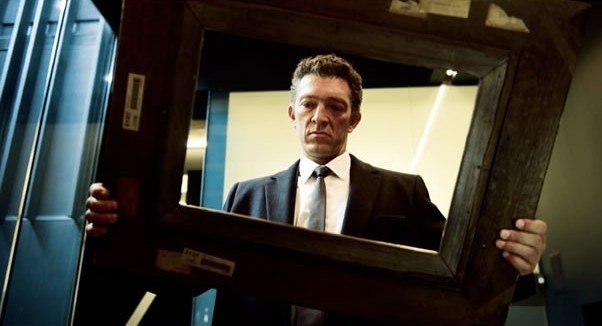Culture
“Trance” will hold your attention

Trance
dir. Danny Boyle
Release Date: Apr 12, 13
- 1
- 2
- 3
- 4
- 5
- 6
- 7
- 8
- 9
- 10
Trance, Danny Boyle’s latest picture, feels like something I would have rented at Blockbuster Video over a decade ago, and yes, that’sa compliment. Here’s why: Prior to The Beach (2000), his criminally underrated Leonardo DiCaprio vehicle, most of Boyle’s work was celebrated stateside on VHS. (At least by me.) His 1994 debut Shallow Grave, his seminal 1996 masterpiece Trainspotting, and, without a doubt, the very 1997 A Life Less Ordinary all recall friend-filled Saturday nights with pizza, chatter and a budding case of Anglophilia. Yet following his critical and commercial smash 28 Days Later, arguably the strongest horror film of the past 30 years, Boyle’s been an event guy over in America with a career that’s blossomed through a succession of award-winning hits a la 2008’s Academy Award-winning Slumdog Millionaire and 2010’s Academy Award-nominated 127 Hours. (Nobody ever recalls 2004’s Millions or 2007’s Sunshine, but those felt like a different Boyle, even if they echoed the cadence of his earlier resume.) No, with Trance, he’s returned to his roots, and it begins with a little writer named John Hodge.
This marks Boyle’s fifth collaboration with Hodge, who penned the drafts for the director’s first four films. With Trance, it’s a simple picture with an intriguing story that’s told through a very complex yet super sleek medium. Does that ring a bell? It should. So much of the film feels like his late ‘90s thrill rides that if it wasn’t for James McAvoy and, nope, just McAvoy, I would have sworn I was at an obscure midnight screening. Why is that good? Because never once does it feel like it’s trying to be anything more than it is. This isn’t some sweeping statement that warrants an interview on Anderson Cooper 360, and no, this won’t win any awards. The charm lies in its curious simplicity (an accessible story, agreeable twists, a dollop of style) which remains a hallmark of Boyle’s first films. In fact, this might be his sexiest picture since The Beach.
McAvoy stars as Simon, a fine arts auctioneer who suffers from a concussion following an abrasive heist in London. The end result is a major headache, a missing $25 million painting and several angry criminals led by Vincent Cassel’s Franck. Where did it go? The answer rests in a lost memory waiting to be salvaged by one beautiful hypnotherapist, played by Rosario Dawson. Tagline: The race is on.
Somewhat based on the 2001 British film of the same name, Trance stays smart and compelling with a tight wire of tension elevated through slick direction and a palpable score by another longtime collaborator, Underworld’s Rick Smith. Its closest cousin might be Christopher Nolan’s Inception, the 2010 blockbuster that made the world of dreams just as mysterious and vivid as the streets of Gotham City. Similar to Nolan, however, Boyle crafts a desirable platform by evolving the science of hypnotherapy into science fiction. Dawson’s multiple sessions with an assortment of characters produces some remarkable scenery and a degree of skepticism that keeps viewers on the edge of their minds.
Such creative leaps earn their consequences, though. While I could listen to McAvoy’s narration for hours (it’s his sense of urgency, or that voice, or both), in hindsight it felt like an all-too-easy setup, even if the exposition was far less effacing than the aforementioned Inception. There’s also a Michael Mann-esque subplot involving Dawson and Cassel that’s just not as powerful as it needs to be for its ending. The problem lies in Trance’s inability to find a capable protagonist; instead, it alley-oops between the film’s three stars, which works for plotting, but not so much for the heart. Cassel, Dawson and McAvoy all deliver strong performances, with high marks to the latter, but so much about their respective characters is hidden behind the many, many twists that it’s difficult to ever champion either of them.
To be fair, that might not be the point. At this year’s South by Southwest, Danny Boyle digressed on his films, stating: “There’s a theme running through all of them—and I just realized this. They’re all about someone facing impossible odds and overcoming them.” The difference with Trance is that the impossible odds outweigh the principal characters. Much like Hodge’s previous entries, it’s a story driven by greed and obsession, resting on a single line spoken by Cassel, who proposes that at some point everyone finds a reason to be greedy. Tracing back those reasons is how and why Trance succeeds, proving that even decades later, Boyle can still turn your Saturday night upside down.